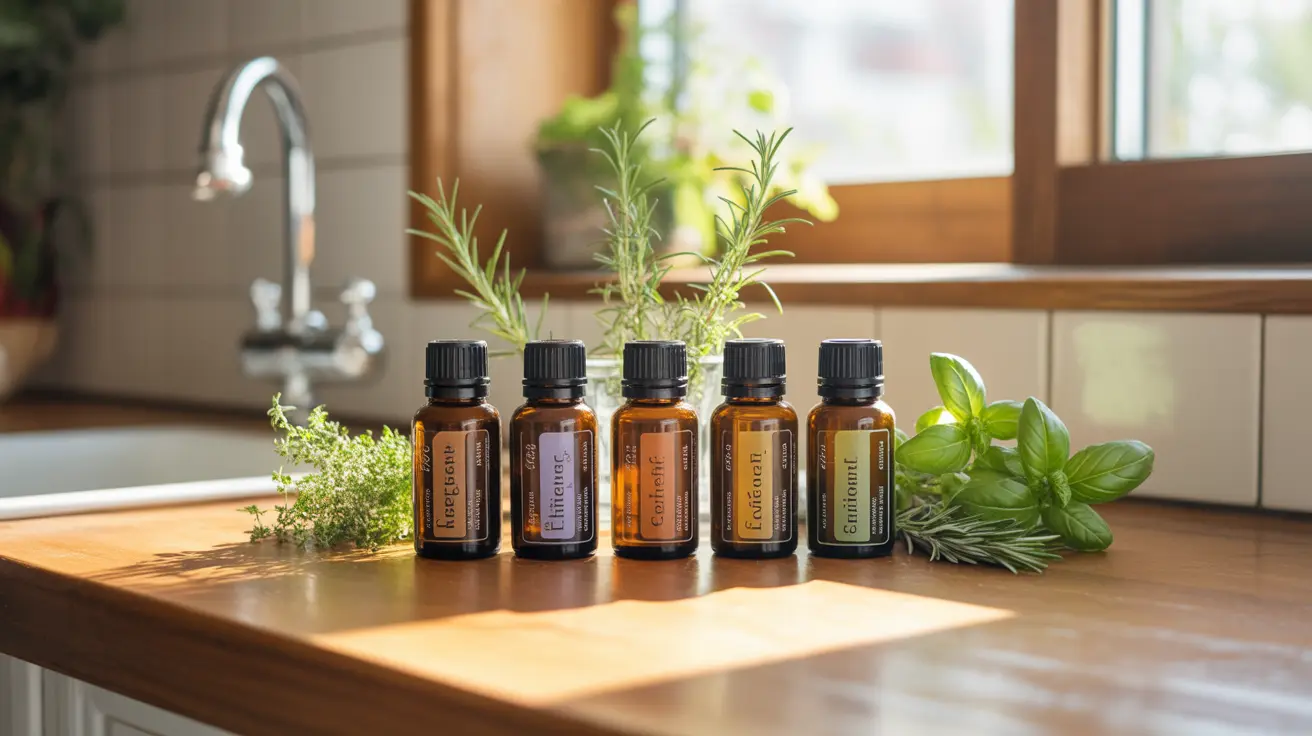Living with Irritable Bowel Syndrome (IBS) can be challenging, and many people are turning to natural remedies like essential oils to help manage their symptoms. While conventional treatments remain important, essential oils offer a complementary approach that may provide relief for some IBS sufferers.
In this comprehensive guide, we'll explore how essential oils can help with IBS symptoms, focusing on scientifically-supported options and safe usage methods. Understanding these natural alternatives can help you make informed decisions about incorporating them into your IBS management strategy.
Understanding Essential Oils for IBS Management
Essential oils are concentrated plant extracts that contain active compounds that may help reduce various IBS symptoms. These natural substances work through different mechanisms, including antimicrobial, anti-inflammatory, and antispasmodic properties.
Most Effective Essential Oils for IBS
Several essential oils have shown promise in managing IBS symptoms:
- Peppermint oil (most researched and proven)
- Lavender oil (helps with stress-related symptoms)
- Ginger oil (aids digestion)
- Fennel oil (reduces bloating)
- Chamomile oil (calms digestive distress)
The Science Behind Peppermint Oil
Peppermint oil stands out as the most well-studied essential oil for IBS. Its active compound, menthol, works by relaxing smooth muscle in the digestive tract, which can help reduce abdominal pain, bloating, and other IBS symptoms.
How Peppermint Oil Works
The mechanism of action includes:
- Calcium channel blocking in intestinal muscle
- Reduction of intestinal spasms
- Anti-inflammatory effects
- Pain-relieving properties
Safe Usage Guidelines and Application Methods
Using essential oils for IBS requires careful attention to safety and proper application methods. Never use undiluted essential oils directly on the skin or consume them without proper guidance.
Recommended Application Methods
Consider these safe ways to use essential oils:
- Enteric-coated peppermint capsules (under medical supervision)
- Diluted abdominal massage
- Aromatherapy diffusion
- Warm compress application
Potential Risks and Considerations
While essential oils can be beneficial, they're not without risks. Always consult with a healthcare provider before starting any new treatment, especially if you have severe IBS symptoms or other medical conditions.
Common precautions include:
- Avoiding direct skin contact with undiluted oils
- Starting with minimal amounts to test tolerance
- Being aware of potential interactions with medications
- Discontinuing use if irritation occurs
Frequently Asked Questions
What essential oils are most effective for relieving irritable bowel syndrome (IBS) symptoms? Peppermint oil is the most effective and well-researched essential oil for IBS symptoms. Other helpful options include lavender, ginger, fennel, and chamomile oils, each offering different benefits for digestive health and stress management.
How does peppermint oil help reduce abdominal pain and bloating in IBS? Peppermint oil works by relaxing the smooth muscles in the intestines through its active compound, menthol. This action helps reduce spasms, ease pain, and decrease bloating by allowing trapped gas to move through the digestive system more effectively.
Is it safe to use essential oils for IBS, and can they be ingested? Essential oils should only be ingested in specific forms, such as enteric-coated peppermint capsules, under medical supervision. Most essential oils are not safe for direct ingestion. External application and aromatherapy are generally safer methods of use.
What are the best ways to apply or use peppermint oil for managing IBS symptoms? The safest and most effective ways to use peppermint oil include taking enteric-coated capsules (as prescribed), diluted abdominal massage with a carrier oil, aromatherapy diffusion, or applying as a warm compress to the abdomen.
Are there any side effects or risks associated with using peppermint oil for IBS? Common side effects of peppermint oil may include heartburn, allergic reactions, or skin irritation. People with GERD, hiatal hernias, or certain medical conditions should consult their healthcare provider before use. Never use undiluted essential oils directly on the skin or consume them without proper medical guidance.




